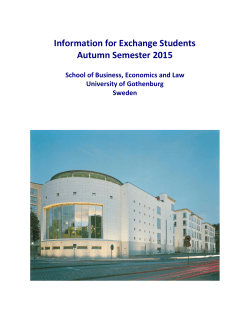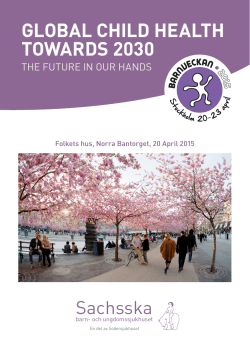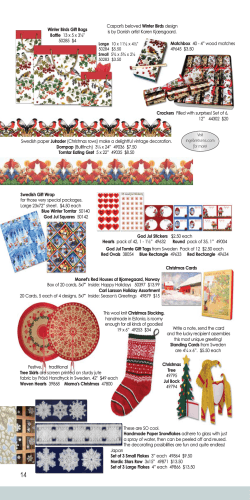
W15-1900
Preface The workshop series on Natural Language Processing (NLP) for Computer-Assisted Language Learning (CALL) – NLP4CALL – is a meeting place for researchers working on the integration of Natural Language Processing and Speech Technologies in CALL systems and exploring the theoretical and methodological issues arising in this connection. The first four editions of this workshop series1 enjoyed have attracted participants from all over the world, including researchers from Australia, Canada, Central, South and Northern Europe, Russia as well as USA (see the figure on the right). The workshops have shown the vast potential that Language Technology holds for language learning and – most importantly – the interest that LT researchers have in the domain of CALL. The intersection of Natural Language Processing and Speech Technology, with Computer-Assisted Language Learning (CALL) brings “understanding” of language to CALL tools, thus making CALL intelligent. This fact has provided the name for this area of research – Intelligent CALL, ICALL. As the definition suggests, apart from having excellent knowledge of Natural Language Processing and/or Speech Technology, ICALL researchers need good insights into second language acquisition (SLA) theories and practices, as well as knowledge of second language pedagogy and didactics. This workshop covers therefore all ICALL-relevant research areas, including studies where NLP-enriched tools are used for testing SLA and pedagogical theories, and vice versa, where SLA theories/pedagogical practices are modeled in ICALL tools. This year we welcomed papers • that describe research directly aimed at ICALL, • that demonstrate actual or discuss potential use of existing Speech Technologies, NLP tools or resources for language learning, • that describe ongoing development of resources and tools with potential usage in ICALL, either directly in interactive applications, or indirectly in materials, application or curriculum development, e.g. collecting and annotating ICALLrelevant corpora; developing tools and algorithms for readability analysis, selecting optimal corpus examples, etc. 1 <http://www.spraakbanken.gu.se/icall> Elena Volodina, Lars Borin and Ildikó Pilán 2015. Preface. Proceedings of the 4th workshop on NLP for Computer Assisted Language Learning at NODALIDA 2015. NEALT Proceedings Series 26 / Linköping Electronic Conference Proceedings 114: i–iii. i • that discuss challenges and/or research agenda for ICALL • we were also interested in software demonstrations We especially invited submissions describing the above-mentioned themes for the Nordic languages. Submissions to the four workshop editions have targeted a wide variety of languages, ranging from well-resourced languages (German, English, French, Russian, Spanish) to under-resourced ones (Estonian, Saami, Võro), among which several Nordic languages have been targeted: Danish, Estonian, Icelandic, Norwegian, Saami, Swedish, and Võro (see the figure to the right). Up to date, the top 5 topics that have dominated the workshop submissions include the generation of language tests and exercises, readability studies, the generation of interactive feedback, the automatic scoring of essays and short answers, and error diagnosis (see more topics in the figure to the right). The workshop series on NLP for CALL is organized by a Special Interest Group on Intelligent ComputerAssisted Language Learning (SIG-ICALL of NEALT)2, and it has received financial support from the Centre for Language Technology at the University of Gothenburg, Sweden (CLT)3 . 2 <http://spraakbanken.gu.se/swe/forskning/ICALL/SIG-ICALL> 3 <http://clt.gu.se/> Proceedings of the 4th workshop on NLP for Computer Assisted Language Learning at NODALIDA 2015 ii We intend to continue this workshop series, which up to date has been the only ICALLrelevant recurring event based in the Nordic countries. Our intention is to co-locate the workshop series with the two major biennial LT events in Scandinavia, the Swedish Language Technology Conference, SLTC, and the Nordic Conference of Language Technology, NODALIDA, thus making this workshop an annual event. Through this workshop, we intend to profile ICALL research in the Nordic countries and to provide a dissemination venue for researchers active in this area. Our special thanks go to the program committee members who have put in a major effort reviewing the submissions: • • • • • • • • • • • • • • • • • • • • • • • • • Lars Ahrenberg, Linköping University, Sweden Eckhard Bick, University of Southern Denmark, Denmark Lars Borin, University of Gothenburg, Sweden Antonio Branco, University of Lisbon, Portugal Frederik Cornillie, KU Leuven Kulak, Belgium Piet Desmet, KU Leuven Kulak, Belgium Simon Dobnik, University of Gothenburg, Sweden Robert Eklund, Linköping University, Sweden Thomas François, UCLouvain, Belgium Katarina Heimann Mühlenbock, DART, Sahlgrenska Universitetssjukhuset, Sweden Kris Heylen, KU Leuven, Belgium Sofie Johansson Kokkinakis, University of Gothenburg, Sweden Chris Koniaris, University of Gothenburg, Sweden Staffan Larsson, University of Gothenburg, Sweden Montse Maritxalar, University of the Basque country, Spain Detmar Meurers, University of Tübingen, Germany Martí Quixal, University of Tübingen, Germany Martin Russell, University of Birmingham, UK Mathias Schulze, University of Waterloo, Canada Joel Tetreault, Yahoo! Labs, USA Trond Trosterud, Universitetet i Tromsø, Norway Cornelia Tschichold, Swansea University, UK Francis Tyers, The Arctic University of Norway, Norway Elena Volodina, University of Gothenburg, Sweden Robert Östling, Stockholm University, Sweden The workshop organizers Elena Volodina, Lars Borin, Ildikó Pilán Workshop website: <http://spraakbanken.gu.se/eng/research/icall/4thnlp4call> Acknowledgements: Financial support for the organization of the workshop has come from the University of Gothenburg through its funding of the Centre for Language Technology: <http://www.clt.gu.se> Proceedings of the 4th workshop on NLP for Computer Assisted Language Learning at NODALIDA 2015 iii
© Copyright 2026











